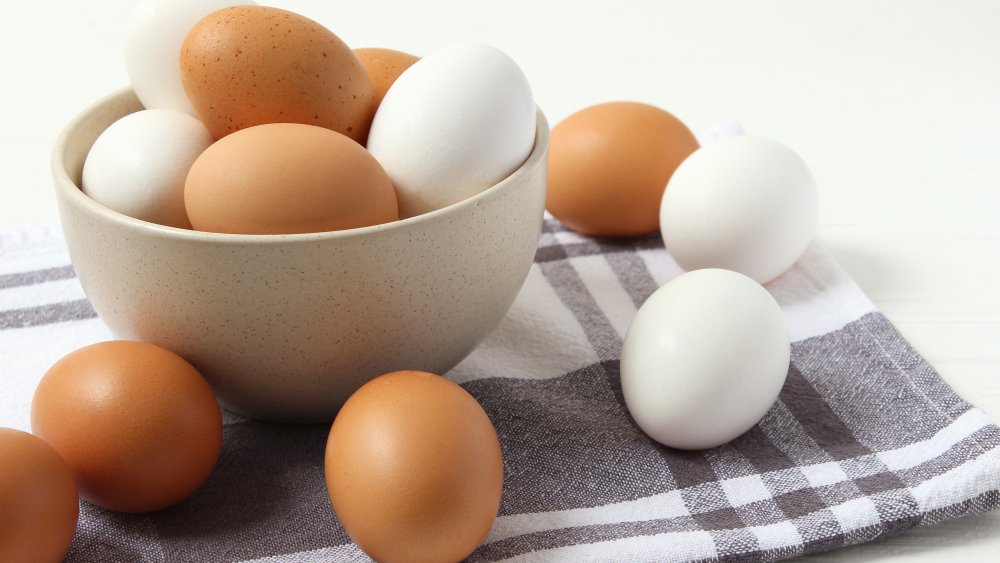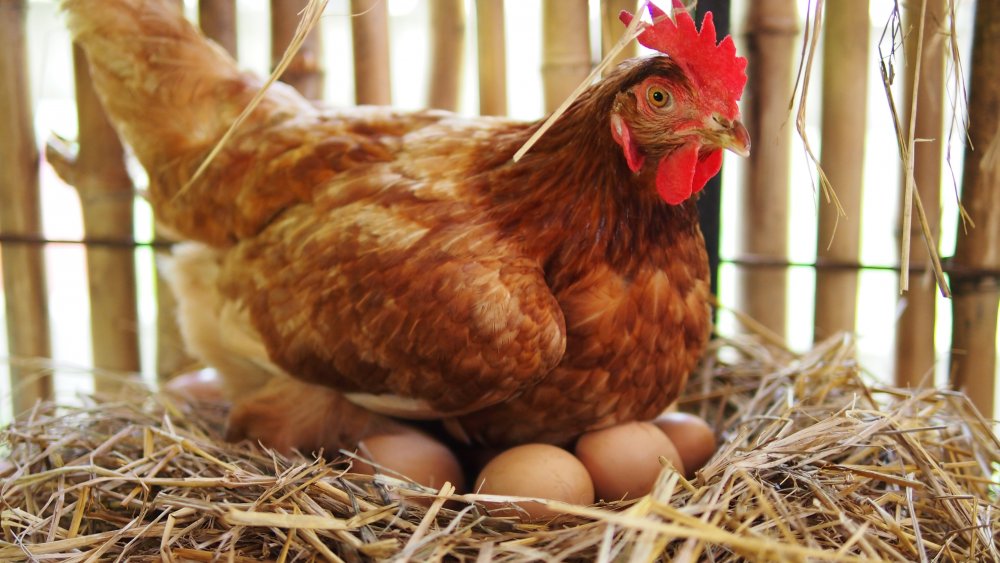The Real Difference Between Cage-Free And Free-Range Eggs
When it comes to eggs, it's all about options. Will you choose hard-boiled, fried, or poached; do you want your eggs fluffy and yellow alongside a crisp strip of bacon, or oozing invitingly from a small porcelain cup? Shopping for eggs in the grocery store presents even more decisions. There are the standard Grade A large eggs we've always seen. Then there are a variety of containers made from more stylish, eco-friendly materials, some of which seem to positively coddle the eggs inside of them. "USDA Organic," these cartons cartons say; "Vegetarian-Fed," boast others. You'll even find brands that go deep into the emotional wellbeing of the hens who produced the eggs. The brand Happy Egg claims their eggs come from birds who are "free to roam, perch, play, dust-bathe and simply be themselves."
Then, there's cage-free, and free-range eggs. Um, how exactly are these two terms different? Eggs-ellent question.
Free-range hens can go outside
Both cage-free and free-range hens have access to litter, nests, and protection from predators. Cage-free hens may be kept indoors, like in a barn, with room to roam. Meanwhile, their free-range sisters get to roam outdoors — they may eat wild plants or bugs.
While the free-range chickens may get bigger digs, keep in mind that the cage-free hen's living situation is positively roomy compared to that of a conventional egg-producing hen. Housed in "battery cages" that can contain up to 10 birds, your standard Styrofoam carton egg-laying hen gets a size "smaller than a standard 8.5-by-11-inch piece of paper" to call home, noted Dylan Matthews in Vox.
So which kind of egg do you want landing sunny-side up on your toast — one that came from a hen that got to explore the great outdoors, one who had a tiny, but private room of her own, or a hen whose home turf was smaller than a sheet of college-ruled loose-leaf?
If taste and nutrition are your only concerns, and you're watching your budget, it might not really matter, Purdue University poultry scientist Dr. Darrin Karcher said. "The egg from a cage-free system is no different nutritionally compared to any other egg that could be produced," he told Best Food Facts.
He encourages people to learn about hen-raising. "Then you can identify based on your beliefs the type of eggs that you choose to buy."

